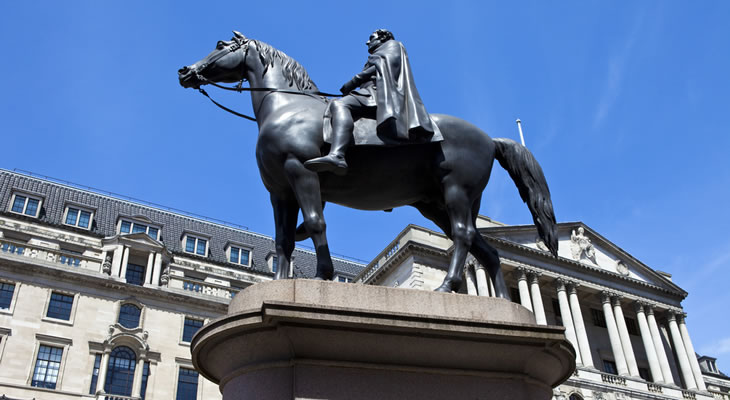The Bank of England (BoE) and European Central Bank (ECB) both have one monetary policy meeting left on the calendar before 2017 ends – and both are scheduled for the 14th of December.
It’s been a turbulent year for the GBP EUR exchange rate, with the pound currently on track to enter 2018 down -4% on January 2017’s opening levels.
Can the BoE and ECB provide cause for a last-minute boost to Sterling and help the UK unit recover some of the losses seen thanks to political turbulence, Brexit uncertainty and a gloomy outlook for consumer spending? Probably not.
Let’s take a look at why December may suggest it won’t be a happy New Year for the Pound Euro pairing.
Gloom Ahead for Long-Term Pound Sterling Exchange Rate Forecasts after December MPC Policy Meeting?
The last meeting of the Monetary Policy Committee (MPC) disappointed markets, even though it resulted in the first interest rate hike in ten years.
Benchmark rates were restored to pre-referendum levels of 0.5% after having been cut to the 323-year low of 0.25% shortly after the UK voted to leave the European Union.
Markets had expected this for some time, meaning it was the long-term Pound Sterling outlook that garnered the lion’s share of investor attention.
Unfortunately, the meeting minutes and Inflation Report did not make for promising reading, given that they suggested just 0.5% worth of hikes – so two, if the BoE sticks to the usual quarter percent rate of tightening – would be needed by the end of 2020.
The Monetary Policy Statement said;
‘All members agree that any future increases in Bank Rate would be expected to be at a gradual pace and to a limited extent.’
This means it is highly unlikely that December’s meeting will see the Bank of England targeting another interest rate hike in the near-term.
Indeed, the statement noted;
‘Monetary policy continues to provide significant support to jobs and activity in the current exceptional circumstances. All members agree that any future increases in Bank Rate would be expected to be at a gradual pace and to a limited extent.’
Therefore the Pound is unlikely to find any support from the interest rate outlook.
Should the BoE have improved its forecasts for economic growth or indicate that it believes today’s Budget will have a positive impact in the long-term, Sterling could experience some upside pressure however.
ECB to Ease Fears of Rebounding Quantitative Easing Asset Purchase Rates?
After months of market chatter and Euro exchange rate fluctuation, the European Central Bank finally cut quantitative easing in its November meeting.
Mario Draghi tried to argue that this wasn’t the taper markets had been anticipating, but slashing the monthly rate of asset purchases in half to €30 billion was nonetheless an important first step towards paving the way for an interest rate hike.
Markets were disappointed, however, by just how cautious the Governing Council was about the move – extending QE by nine months instead of the expected six and warning that;
‘From January 2018 the net asset purchases are intended to continue at a monthly pace of €30 billion until the end of September 2018, or beyond, if necessary, and in any case until the Governing Council sees a sustained adjustment in the path of inflation consistent with its inflation aim.’
‘If the outlook becomes less favourable, or if financial conditions become inconsistent with further progress towards a sustained adjustment in the path of inflation, the Governing Council stands ready to increase the APP in terms of size and/or duration.’
Markets will therefore want to see that the European Central Bank has paid attention to the recent strong Eurozone data – that suggests that the currency bloc economy is set to record its fastest growth rate in a decade – and therefore steer away from any attempts to up QE again.
Although recent inflation data has somewhat disappointed, the overall strength of the Eurozone economy is likely to stay the ECB’s hand.
Mario Draghi, the ECB President, is likely to stress as usual that the Eurozone still needs a substantial amount of monetary policy to support the recovery, but as long as the Governing Council indicates it intends to keep its hands off the asset purchase programme, the Euro could make gains in December.


Comments are closed.